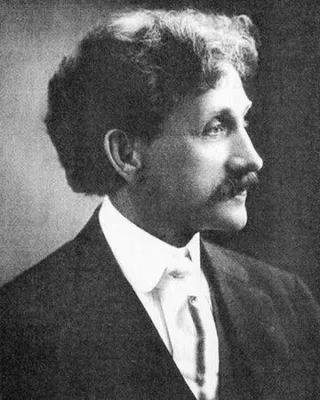
John Howard Moore (December 4, 1862 – June 17, 1916) was a biologist, philosopher, and author who played a role in shaping scientific and ethical thought during the late 19th and early 20th centuries. He is best known for his advocacy of evolutionary ethics and the concept of universal kinship. Moore was born in near Rockville, Indiana, in 1862 and spent his formative years in Linden, Missouri. His studied at the University of Chicago, then the University of Michigan and Harvard, where he earned a Ph.D. in biology.
Moore’s most famous book, “The Universal Kinship,” published in 1906, was a seminal work in the field of animal rights and the ethics of human-animal relationships. The book argued that all living beings, from the smallest bacteria to the largest mammals, were connected by a common ancestry and a shared capacity for thought and feeling. Moore contended that humans had a moral obligation to treat animals with respect and compassion, as they were capable of experiencing pain, pleasure, and other emotions.
In “The Universal Kinship,” Moore also discussed the implications of his theory for human society and culture. He argued that the moral progress of humanity depended on our ability to recognize and respect the kinship we share with all living beings. This would require a fundamental shift in human attitudes towards animals, from one of domination and exploitation to one of partnership and stewardship.
Another notable work by Moore was “The New Ethics” (1907), in which he expanded on the ideas he presented in “The Universal Kinship.” In this book, he argued that ethics should be grounded in the principles of biology and evolution, rather than in religious or metaphysical beliefs. Moore believed that the ultimate goal of ethics was to promote the well-being of all living beings, and he saw the study of evolution as a way of understanding the complex interrelationships between organisms and their environments.
Howard Moore was a remarkable thinker and writer who made significant contributions to the fields of biology, ethics, and philosophy. His books, including “The Universal Kinship” and “The New Ethics,” continue to be studied and debated by scholars today, and his ideas about animal rights and universal kinship have had a profound impact on the development of ethical thought.
The Universal Kinship
Moore first came to Henry Salt’s attention when he wrote a notice for a book of his, Better-World Philosophy in 1899. Moore’s The Universal Kinship was first published in 1906.
Writing in his autobiography The Company I Have Kept, Salt wrote, “I have long thought that Moore’s chief book, The Universal Kinship, the gist of which is clearly expressed in the title, is the best ever written in the humanitarian cause.”
Salt and Moore corresponded regularly; four of Moore’s letters to Salt are included in the Appendix of Centaur’s 1992 edition of Moore’s The Universal Kinship, which was introduced and edited by Charles Magel.
In 1923 Henry Salt dedicated his The Story of My Cousins “To the memory of my friend, Howard Moore, author of ‘The Universal Kinship.’”
In The Company I Have Kept Salt paid the following tribute to Moore, “I have a theory that we judge best of the reality of friendships in absence; and if this be true, I cannot have been mistaken as to the warmth of my feelings for Howard Moore, for I never saw him in person, though we corresponded regularly for years, and I have still a big packet of his letters which show him to have been no less lovable as a man than he was brilliant as a writer.”
Howard Moore Bilbiography
Why I Am A Vegetarian, by J. Howard Moore, Chicago: Frances L. Dusenberry, 1895, 48 pages
The Unconscious Holocaust, by J. Howard Moore, Western Health Reform Institute, February 1, 1897, pp. 74-6
America’s Apostasy, by J. Howard Moore, Chicago Chronicle, March 6, 1899, 4 pages
Better-World Philosophy: A Sociological Synthesis, by J. Howard Moore, The Ward Waugh Company, 1899, 288 pages.
The Univeral Kinship, by J. Howard Moore, Charles H. Kerr & Company, 1906, 342 pages
The New Ethics, by J. Howard Moore, London: Enest Bell, 1907, 232 pages.
Ethics and Education, by J. Howard Moore, G. Bell & Sons, 1912, 224 pages
Savage Survivals, by J. Howard Moore, Charles H. Kerr & Company, 1916, 194 pages
The Source of Religion, by J. Howard Moore, International Socialist Review, June 16, 1916, pp. 726-7
For more information on J. Howard Moore visit Through The Hourglass and Animal Rights: A History.